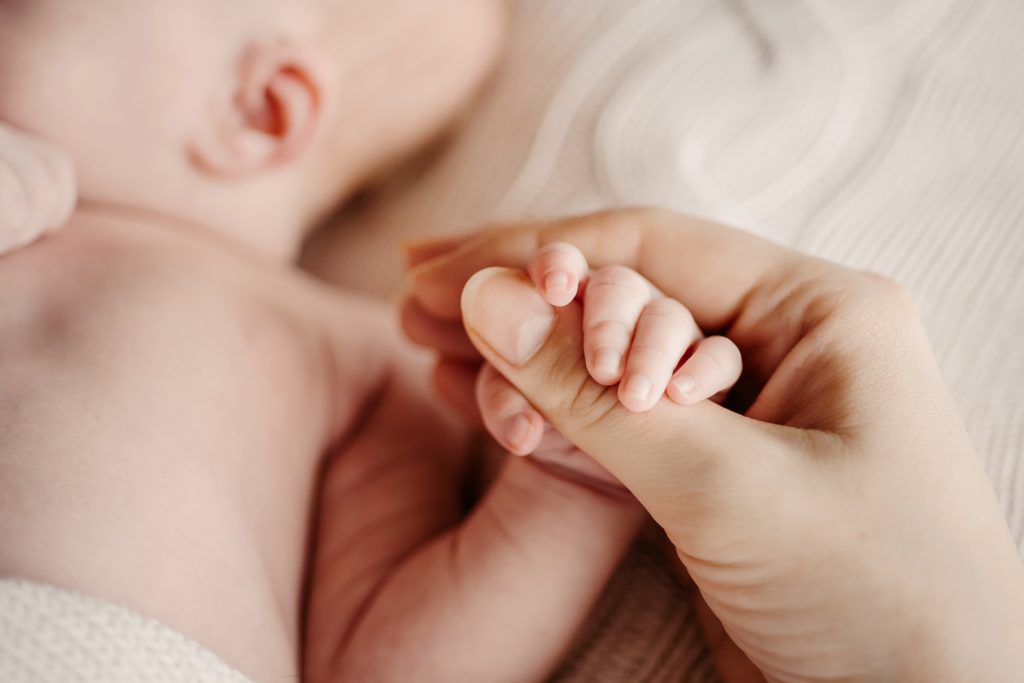Safe sleep habits for babies can reduce sudden unexpected infant deaths
HSHS hospitals provide guidance to new and expecting parents
SPRINGFIELD, Ill. — The caring clinicians at Hospital Sisters Health System’s (HSHS) Women and Infant Centers reminds the community, especially new parents, of the importance of safe sleep and positioning practices for newborns. HSHS provides multiple ways to stay educated and informed on the best practices for safe sleep to reduce the risk of Sudden Infant Death Syndrome (SIDS).
Unsafe sleep is a leading cause of death for children one year old and younger. In 2022, there were about 3,700 sudden unexpected infant deaths (SUID) in the United States, and 1,529 of those deaths were from SIDS. In addition, SUID and SIDS disproportionately impact families of color, especially Black, American Indian/Alaskan Native, and low-income families.
Safe sleep practices are ways to make sure babies are as safe as they can be while sleeping to prevent SUID and SIDS. Medical experts recommend following the ABCs of safe sleep practices until babies turn one:
- Alone – Babies should sleep alone, with no blanket, bumpers or anything else in the crib with them, and not sleeping with their parents.
- Back – Babies should always be placed on their backs to sleep at nighttime and for naps.
- Crib – Babies should sleep in a crib, bassinet or portable play yard with a firm, flat mattress and fitted sheet.
“We educate all of our parents on safe sleep habits,” said Shannon Maddaleno, Nursing Manager of HSHS St. Francis Hospital’s Family Maternity Center. “Babies should be laid down to sleep on their backs until they are old enough to roll over and have enough neck strength to turn their heads from side-to-side. Also, babies should sleep alone in a crib with a firm mattress free of blankets, bumpers, stuffed animals or any other crib items.”
The HSHS hospitals located in Central Illinois hold a variety of accreditations for teaching and providing safe care to those who deliver at these locations, including:
- St. John’s Hospital in Springfield is home to the area’s only Level III NICU and provides care to premature babies and other seriously ill infants throughout South-central Illinois. Its expert team is well-equipped to educate parents on the importance of safe sleep habits. St. John’s offers prenatal courses that are designed to meet the needs of expectant parents.
- St. Francis Hospital in Litchfield is recognized and certified as a Safe Sleep Leader by the National Safe Sleep Hospital Certification, which was created by Cribs for Kids. They also offer a childbirth education class which shares information about safe sleep practices.
- St. Anthony’s Memorial Hospital in Effingham offers prenatal education courses where expectant parents can learn about safe sleep habits and sleep education from their dedicated and specialized Women and Infants team.
Jessica Jennings, Nursing Manager of HSHS St. John’s Hospital’s Women and Infants Center, shared additional tips. “While it can be tempting to bring your baby in bed with you, they should sleep on a firm mattress in a safety-approved crib covered by a fitted sheet, next to where you sleep. Dress your baby in sleep clothing such as a wearable blanket, and always place your baby on their back for sleep,” she said. “If you breastfeed in bed, soothe your baby back to sleep while standing and return to crib when they are asleep.”
For more information on safe sleep habits, visit the American Academy of Pediatrics web site at aap.org.
For more information about services available at all HSHS locations, visit hshs.org.
###
About Hospital Sisters Health System
HSHS St. Anthony’s Memorial Hospital, Effingham is part of Hospital Sisters Health System (HSHS), a Catholic health care ministry founded in 1875. Dedicated to our Mission to reveal and embody Christ’s healing love for all people through high-quality Franciscan health care, HSHS clinicians provide exceptional care centered on the whole person. Based in Springfield, Illinois, HSHS employs more than 11,000 colleagues who provide care in 13 acute-care, children’s and critical-access hospitals and home health and hospice programs in Central and Southern Illinois and Eastern Wisconsin. HSHS is aligned with more than 1,000 primary and specialty physicians and advanced practitioners through its owned affiliates HSHS Medical Group and Prairie Cardiovascular and its partnership with Prevea Health. For more information about HSHS, visit hshs.org.

